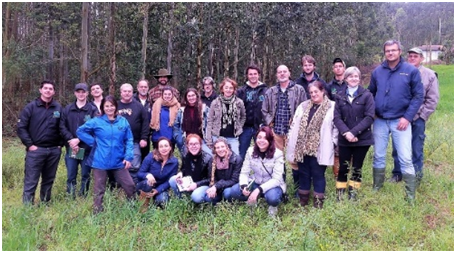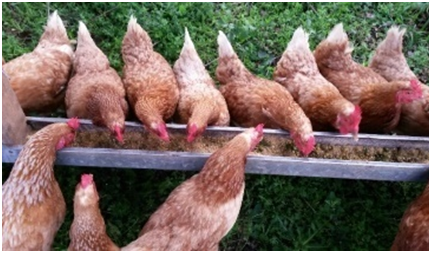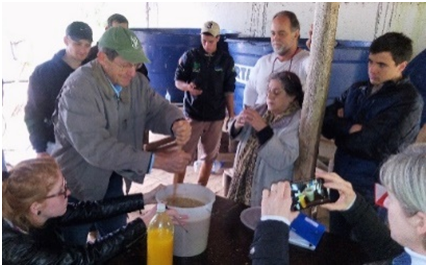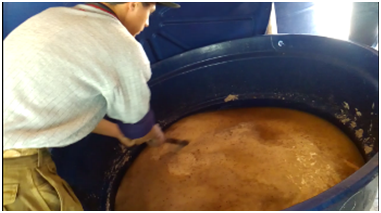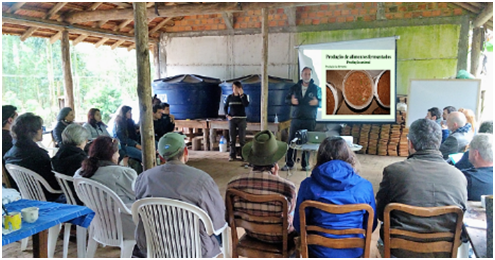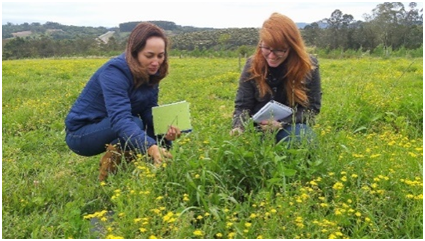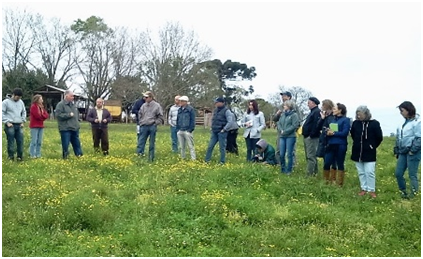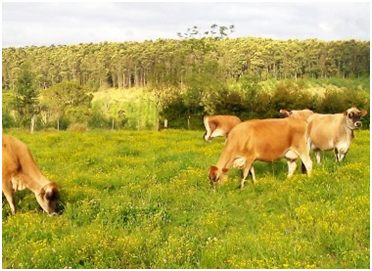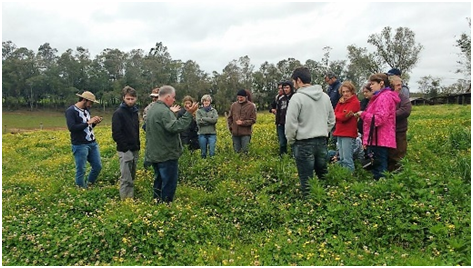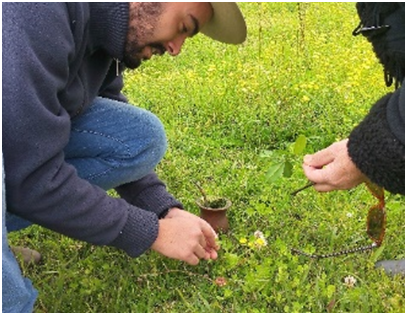WORKSHP ON BIODYNAMIC PREPARATIONS
Theory and practice. Elaboration and use.
Between May 3 and 4, the IBEM held the Workshop on Biodynamic Preparations, with theoretical classes at the Antroposófica Candeia School in Porto Alegre, and practical activities at the Maxgo Jersey Farm in Tapes, RS. 23 people participated, including farmers, technicians, teachers and students. Deise Pelicioli, graduated in Enology and Viticulture and specialist in biodynamic agriculture, conducted the activities.The Basics of Biodynamic Agriculture integrates the theoretical part of the workshop, while in the practical activities the participants learned to elaborate the autumn biodynamic preparations: sprinkling preparations, compound preparations and flaming. They also stimulated and applied the products in the pastures. The workshop will continue in the spring, when the preparations buried in the fall will be unearthed and ready for use. In the second workshop the spring preparations will be buried, giving continuity to the cycle.Those interested in participating in the spring workshop that will take place in October should send an email to ibembrasil.org@gmail.com.
ABOUT BIODYNAMIC PREPARATIONS
“Biodynamic preparations were developed by Rudolf Steiner, based on Anthroposophy.
They can be divided into two groups: those that are sprayed on soil and plants, and those that are inoculated into compost or other forms of organic fertilizers such as biofertilizers and manure. The preparations are numbered between 500 and 508 – which came first as a code and nowadays facilitates international communication, however, it is better to use each one’s own name when we refer to them.Preparations can be considered as homeopathic remedies with respect to natural substances used, processes of dynamization and action through forces and not substances and because they are used in minimal quantities, however, are not related to the theory or practice of homeopathy. They are made from medicinal plants, manure and silicon (quartz), which are wrapped in animal organs, buried in the soil and subjected to the influences of the Earth and its annual rhythms. “(Anthroposophical Association)

